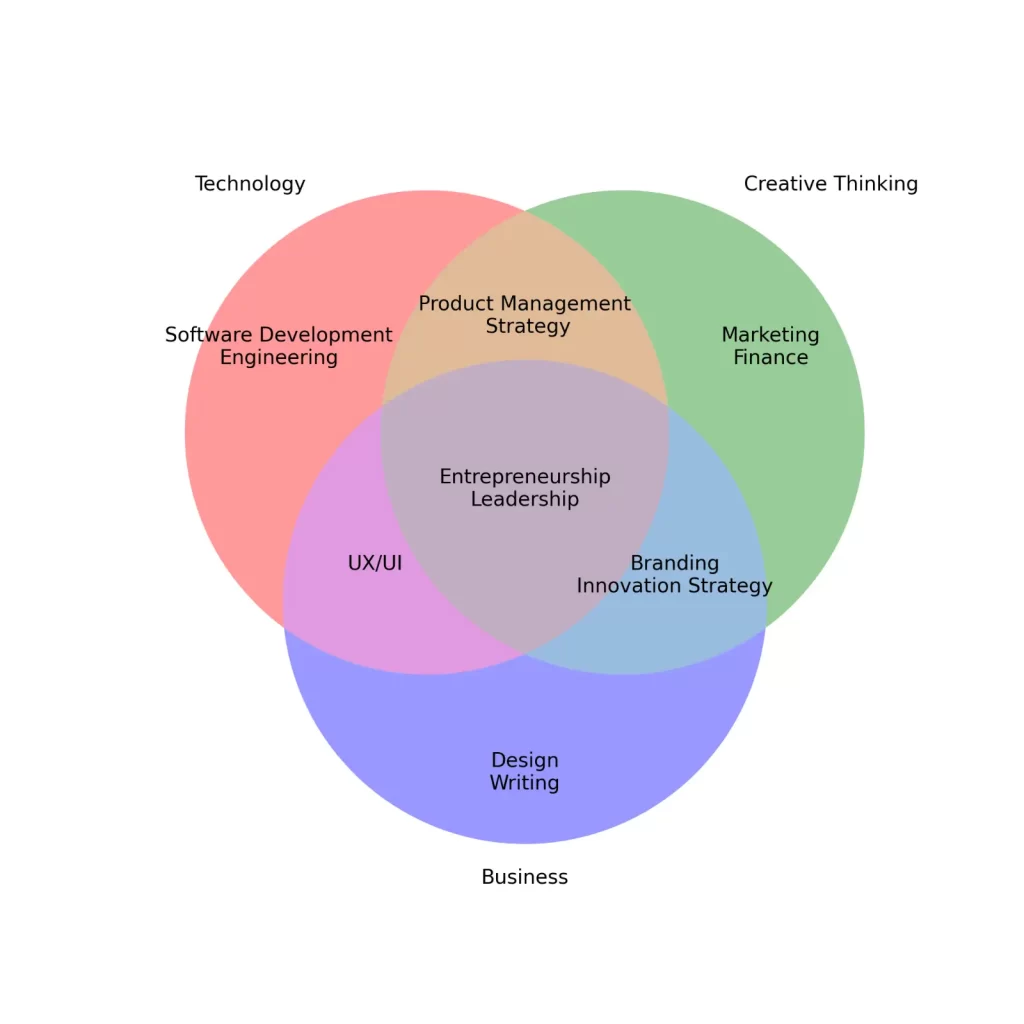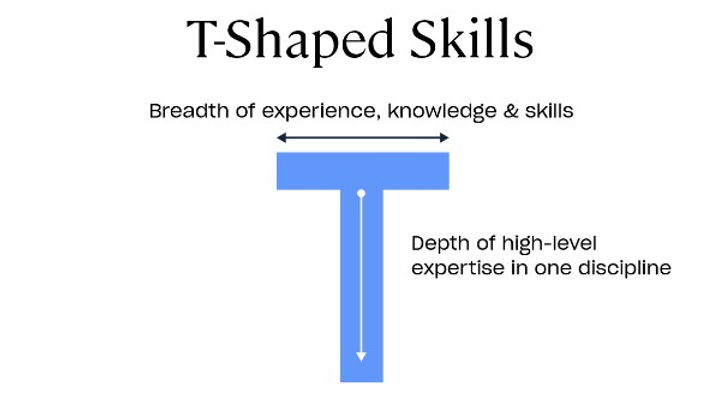
“The future belongs to those who learn more skills and combine them in creative ways.” – Robert Greene
For decades, the world has favored specialists. The conventional wisdom has been clear: pick one field, master it, and success will follow. Society rewards deep expertise, from academia to corporate careers, where people build their reputations by knowing more and more about less and less.
But the world is changing, and so are the skills needed to navigate it. Industries no longer evolve in isolation, it needs complex structure build with resources management in mind. Technology, business, and science are increasingly interconnected. Problems are complex, requiring solutions that don’t fit neatly into one discipline. In this new landscape, generalists those who think broadly, adapt quickly, and draw insights from multiple domains, are not just relevant. They are becoming indispensable.

The Myth of Specialization
“We can’t solve problems by using the same kind of thinking we used when we created them.” – Albert Einstein
Specialization has been the backbone of progress for centuries. Scientists, engineers, and experts have pushed the boundaries of human knowledge through deep focus. The logic is simple: if you want to be the best, you need to dedicate yourself to a single path. And in some cases, this remains true. Surgeons, elite athletes, and researchers cannot afford to spread themselves too thin.
But specialization has its limits. It often creates tunnel vision. The deeper someone goes into a single subject, the harder it becomes to see beyond it. Industries that rely too much on specialists tend to get stuck in rigid ways of thinking.
History offers many examples of companies and industries that failed because they were too specialized and lacked the broad vision to adapt.
When Specialization Led to Failure
Kodak (Photography & Film) – Invented the digital camera in 1975 but ignored it, fearing it would cannibalize their film business. As digital technology took over, Kodak collapsed, declaring bankruptcy in 2012.
Nokia (Mobile Phones) – Dominated the mobile industry in the early 2000s but focused too much on hardware and ignored the shift to software-driven smartphones. Meanwhile, Apple and Google revolutionized the industry with iOS and Android. Nokia’s mobile division was sold to Microsoft in 2014.
And last but no least, Blockbuster (Entertainment & Video Rentals) – Specialized in physical video rental stores but underestimated the rise of streaming. Netflix, founded in 1997, embraced digital distribution and eventually crushed Blockbuster, which went bankrupt in 2010.
When Generalists Led to Breakthroughs
On the flip side, some of history’s most innovative individuals and companies have thrived precisely because they thought beyond specialization, applying knowledge from multiple disciplines.
Jeff Bezos (E-Commerce, Logistics, Cloud Computing) – Founded Amazon as an online bookstore but saw potential in cloud computing and logistics, expanding into AWS, entertainment, and artificial intelligence. Amazon’s success is due to a broad, interconnected vision, not narrow expertise.
Steve Jobs (Technology, Design, Business) – Jobs’ interest in calligraphy shaped Apple’s focus on typography and aesthetics. His ability to merge technology, user experience, and design created products that revolutionized multiple industries.
Tim Berners-Lee (Computer Science, Information Management) – A physicist by training, he combined his knowledge of computing and information management to invent the World Wide Web in 1989, changing the way the world communicates.

Why Generalists Excel in Innovation
If specialization is about depth, generalism is about connection. Instead of mastering a single skill, generalists master the ability to combine knowledge from different fields. This ability is where breakthroughs happen.
Leonardo da Vinci was not just an artist but an engineer, scientist, and anatomist. His understanding of the human body shaped his paintings, and his artistic sensibility influenced his inventions.
David Epstein, author of Range: Why Generalists Triumph in a Specialized World, argues that generalists have an edge in problem-solving because they develop “far transfer”, the ability to apply learning from one context to another. Unlike specialists, who refine one approach, generalists are flexible and adaptable, allowing them to succeed in unpredictable environments.

The Future Belongs to Those Who Can Navigate the Unknown
“In an age of rapid change, the learners will inherit the earth, while the learned will find themselves beautifully equipped to deal with a world that no longer exists.” – Eric Hoffer
The world is shifting, and those who remain fixed in a single path may find themselves trapped in its fading light. Rapid advancements in AI, automation, and technology are challenging traditional expertise, making deep technical knowledge less valuable when kept in isolation. The ability to see beyond a single field, to blend disciplines, perspectives, and ideas, will determine who thrives in the future.
In the midst of uncertainty, generalists hold the advantage. They are the ones who can bridge knowledge gaps, connect ideas from different domains, and navigate the unknown with clarity. Where specialists see only what is in front of them, generalists illuminate new possibilities by drawing from diverse experiences.
Innovation does not happen in the light of certainty. It happens in the shadows of the unknown, where those who can think across disciplines and adapt to change will carve the future. The ones who dare to find light in the darkness of disruption will not just survive, they will lead.

Where Generalism Does Not Work
“If you try to be everything to everyone, you’ll be nothing to anyone.” – Patrick Lencioni
Generalism is not a one-size-fits-all solution. There are industries where specialization remains essential. Medicine, engineering, and academia require years of focused training. Some companies, especially large bureaucratic ones, still prefer narrowly defined roles.
Even in fields where generalists thrive, being too scattered can be a weakness. A successful generalist is not someone who dabbles without direction but someone who finds connections between disciplines and uses them effectively. The key is to balance breadth with depth, what some call a T-shaped skillset. You go deep in one area but remain broad enough to draw insights from others.

The New Path Forward
Careers were once like straight roads, predictable and well-marked. But today, success is found in the spaces in between, where rigid paths dissolve and new ones emerge. The world no longer rewards those who follow a single predefined track but those who can navigate change with agility.
Like this winding path between water and land, the most successful individuals are those who balance depth and breadth, who know when to specialize and when to expand, when to focus and when to explore.
The future doesn’t belong to specialists alone, nor to generalists without direction. It belongs to those who adapt to the landscape ahead, flowing with change rather than resisting it. The greatest asset is no longer just what you know but how seamlessly you can connect knowledge, move between disciplines, and shape your own way forward.
